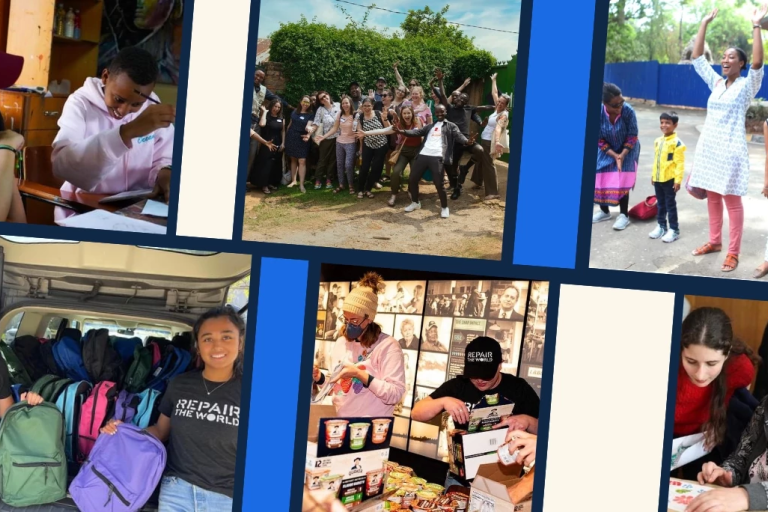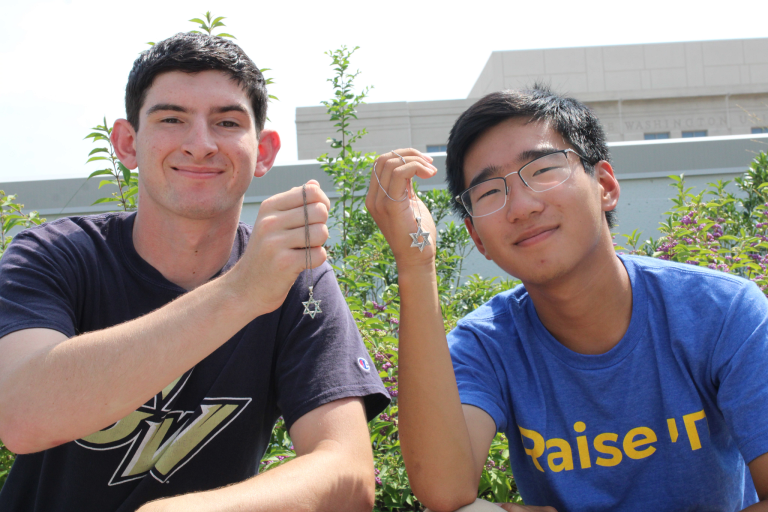Published
September 18, 2013
Tags
 Sarah Kornhauser is the Director of Hazon in Denver, Colorado and an ROI Community member. Along with the rest of the Denver Hazon staff, she focuses on capacity building, network weaving and supporting individuals and organizations with big ideas around the intersection of food, the environment and Jewish tradition. Sarah operates on the strong belief that being Jewish can be a vibrant lens through which to view and transform the world.
Sarah Kornhauser is the Director of Hazon in Denver, Colorado and an ROI Community member. Along with the rest of the Denver Hazon staff, she focuses on capacity building, network weaving and supporting individuals and organizations with big ideas around the intersection of food, the environment and Jewish tradition. Sarah operates on the strong belief that being Jewish can be a vibrant lens through which to view and transform the world.
I wouldn’t describe myself as religious, but I am greatly intrigued by the traditions and customs our Jewish culture offers. I love that we are a land based people, a people rooted in food, literature and community. For me, the importance of Jewish traditions has grown as I learn about them in ways that resonate, and Sukkot is no exception.
As a practicing Yogi and as a creatively practicing Jew, I have recently realized that Sukkot is a festival of Joy. Moreover, it just so happens that "Sukah" translates in Sanskrit as a form of happiness: su stands for good and kah for the hold of an axle. Put them together and the word represents uninhibited flow.
In Judaism, Sukkot, like all Jewish holidays, has a multitude of meanings. It is both agrarian and historical in nature and has a wide breadth of spiritual interpretations. Historically, it reminds us of when our people were traveling through the desert and made temporary shelters or tabernacles. Agriculturally, it honors the fall harvest, water use and rights, a changing of the seasons and environmental stewardship. From these roots, we derive the spiritual meanings: breaking down illusions of safety and security, changing our routine, finding truth in simplicity and for the yogi in me, joyous, uninhibited flow.
Yet, just as I have begun to sink my teeth into the meaning of Sukkot, I find myself struggling with the concept of joy during a particularly dark moment. As I write this, floods continue their devastation in Boulder, Colorado, just down the road from me.
A bit farther away, D.C. reels from a mass shooting. During times like these, I am conflicted with how, when pieces of the world feel so dark, we can be expected to feel joy. Instead, this year I am finding solace in the concept of shelter. To honor the holiday, the Torah commands us do a lot of things, including (but not limited to) building a temporary structure with three sides and a patchy roof made of things found in nature so that we may see the stars through its holes. Most importantly, we must share the space with ushpizin, the aramaic word for guests. Each guest should represent parts of the following characteristics: love and kindness, restraint and personal growth, beauty and truth, age and wisdom, empathy and receptivity, spirituality and connectedness to the earth.
In the wake of recent trauma, I would like to think that shelter can make a difference for victims, for loved ones and for those who battle internal struggles. For those who have been displaced by natural disasters, I wish them shelter for meals and for sleep. For those who fall victim to violent crimes, I wish them shelter for love and healing. And for those that would perpetrate crimes, those who have lost the characteristics of the ushpizin, I wish them shelter where their mental health can be treated.
My challenge to you this Jewish year of 5774, is to create a shelter. Create a space this Sukkot—be it in a Sukkah, a corner of a room or under a tree—and make it intentional. Gain perspective by looking at the stars, the clouds or the people walking by. Think of the guests you could invite into your space. Strangers? Loved ones? Or take some time to reflect and be with yourself.
Whomever you invite, accept into your space love, growth, wisdom, empathy, spirituality and earthly connectedness. Create a space in which you can, simply, and without inhibition, flow. This year, may you create and find sukkat shalom, a shelter of peace for yourself and for others.




